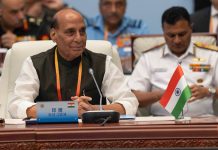
Directors: Vikramaditya Motwane
Starring: Ranveer Singh Sonakshi Sinha Barun Chanda Vikrant Massey
The great thing about Udaan, Vikramaditya Motwane’s 2010 debut, was that though the powerful story was front and centre while actually watching the film, the glorious visuals and music remained in the mind for weeks afterwards. It is Motwane’s most distinctive quality, this perfectionist focus on the mise en scène, while never letting it overshadow the plot. Lootera, his second film, is an evolution in his style, a “celebration of what is possible with a 35-mm camera”, as another reviewer quite rightly puts it. From the locales to the lighting to the set design to Mahendra Shetty’s cinematography to Amit Trivedi’s music, everything is just right. That is not to say that Motwane presents yet another romantic story with overly ornate visuals much like his former mentor Sanjay Leela Bhansali. Neither does he, like his current mentor Anurag Kashyap is wont to do, use style for the sake of style. He realises that his job is to prepare the canvas on which his actors will paint their masterpiece.
The trouble is, however, that while Ranveer Singh and Sonakshi Sinha try — in the case of Sonakshi, more than she has, or indeed, ever had to try in her career — and paint a decent, even beautiful, painting on that canvas, it lacks the transcendental power of a true masterpiece. It is why, I suppose, everyone is talking first and foremost about Motwane’s talents as a technician; discussions about the great film romances begin and end with the star-crossed couple, not how well shot that chase sequence right after the interval was (it really was, though).
The story begins in 1953 Bengal, on the eve of the dissolution of the zamindari system. Barun Chanda plays Pakhi’s (Sonakshi) doting father, one such endangered landlord who has to watch as his property and treasures are taken away by an assertive young nation. Varun (Ranveer) arrives at his estate under false pretences, yet another predator attracted by the zamindar’s precarious position in the new order. He doesn’t count, however, on Pakhi falling for him and vice versa, which complicates matters, as such things always do. The complications lead to a shift in the story from Bengal to Dalhousie, the change in mood and setting marked by a change in the colours on screen: the warm hues of rural idyll replaced by cold, metallic colours for the melancholy the characters feel. One reason, of course, that the colours change is that a snowy, windy winter’s night is necessary to the plot, which is essentially a loose adaptation of O Henry’s short story The Last Leaf (‘loose’, in that it shoehorns the four-page story as a melodramatic conclusion to the actual story it wants to tell).
The love affair is old-school — it is 1953, after all — surreptitious looks, subterfuge to get past the old man, actual conversations before the song-and dance sequence declaring their love to each other, no song-and-dance sequences. This means that both actors have to provide a largely internalised performance. While Sonakshi rises to the challenge, Ranveer turns in a performance that is more mumbly than anything. It is a role he’s said he had trouble pulling off; it shows in the many occasions he loses control and looks generally lost. It also means there’s little chemistry between the two, which means that it’s easy not to care about what happens to the couple. Ultimately, that is what determines whether you love the film or merely admire it. Lootera is a genuinely impressive attempt at telling a love story without the usual Bollywood shorthand. But by telling its story in such high definition, it leaves its blemishes all too visible.
ajachi@tehelka.com










